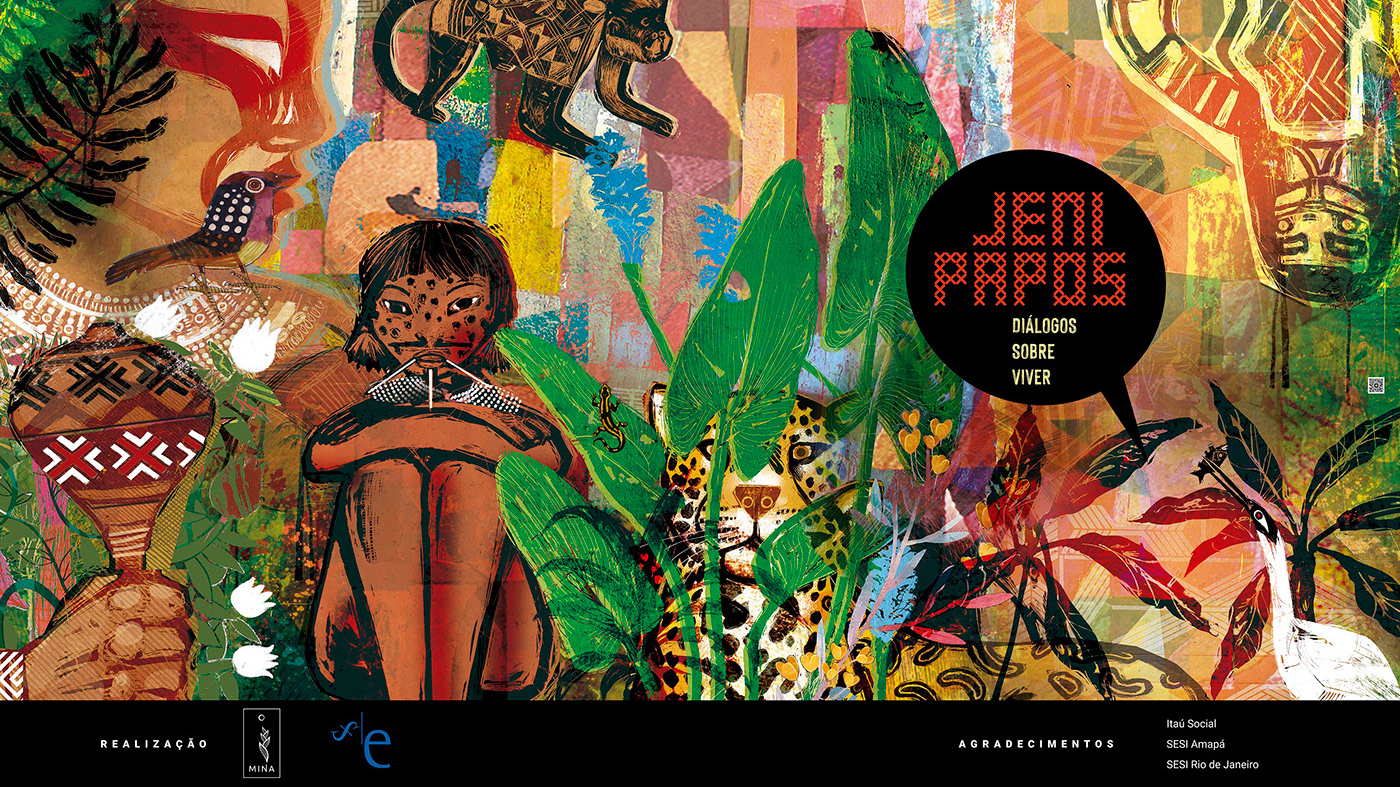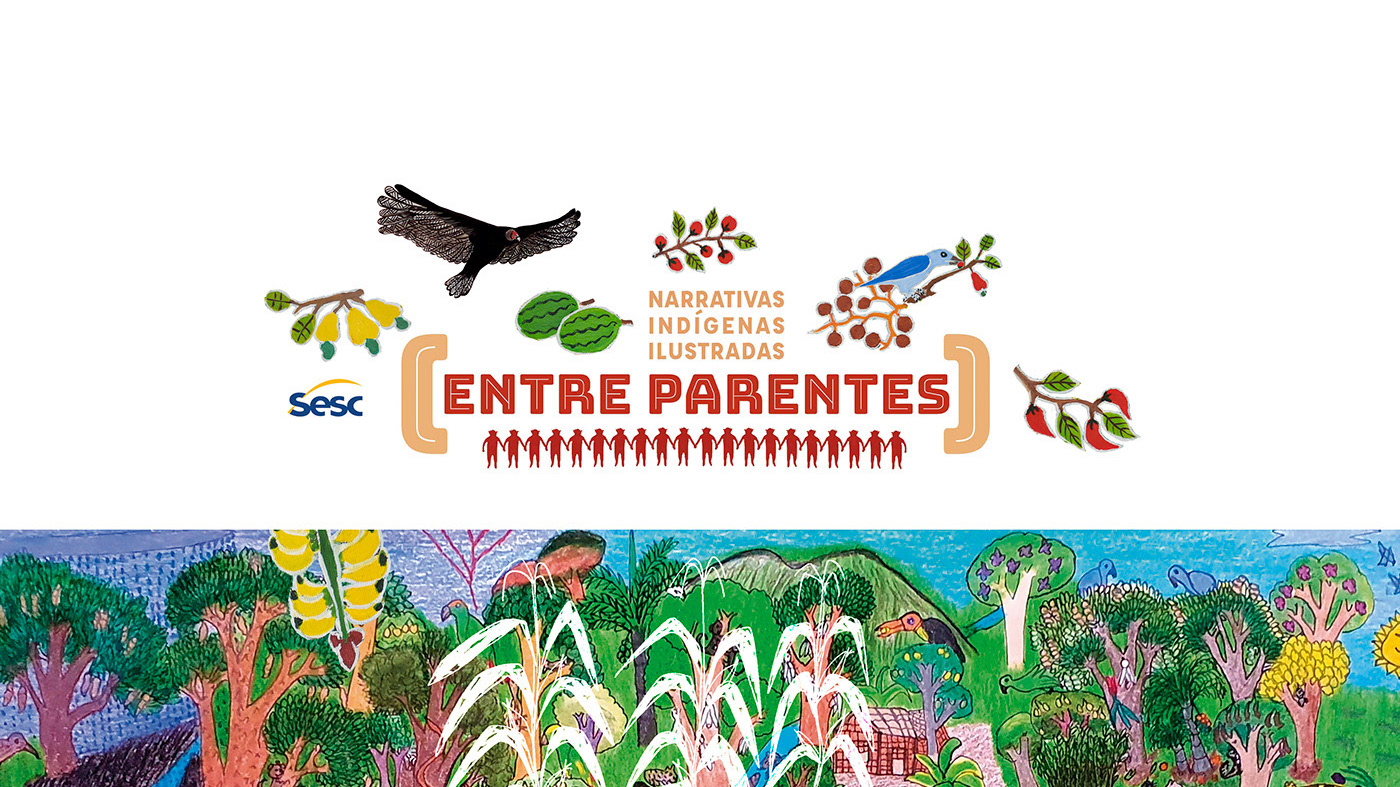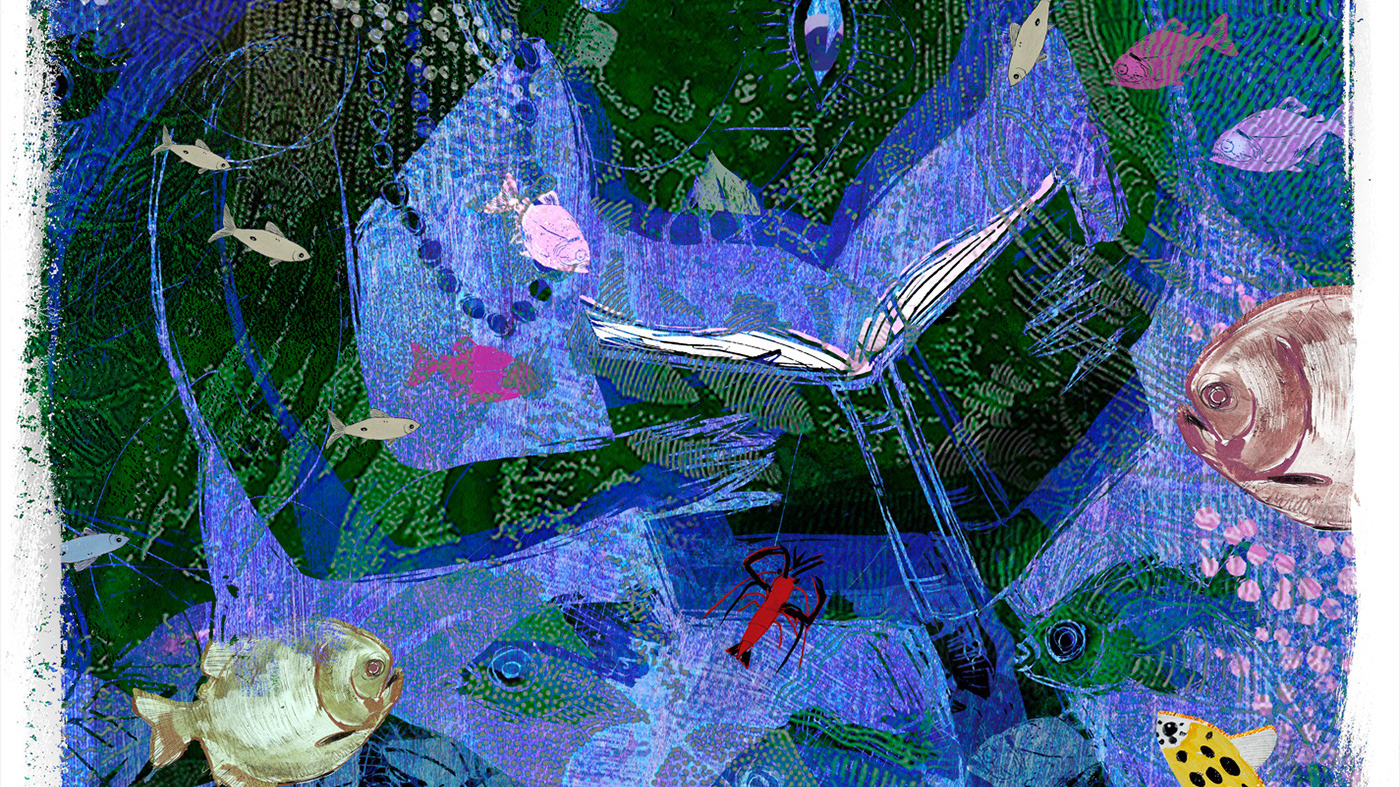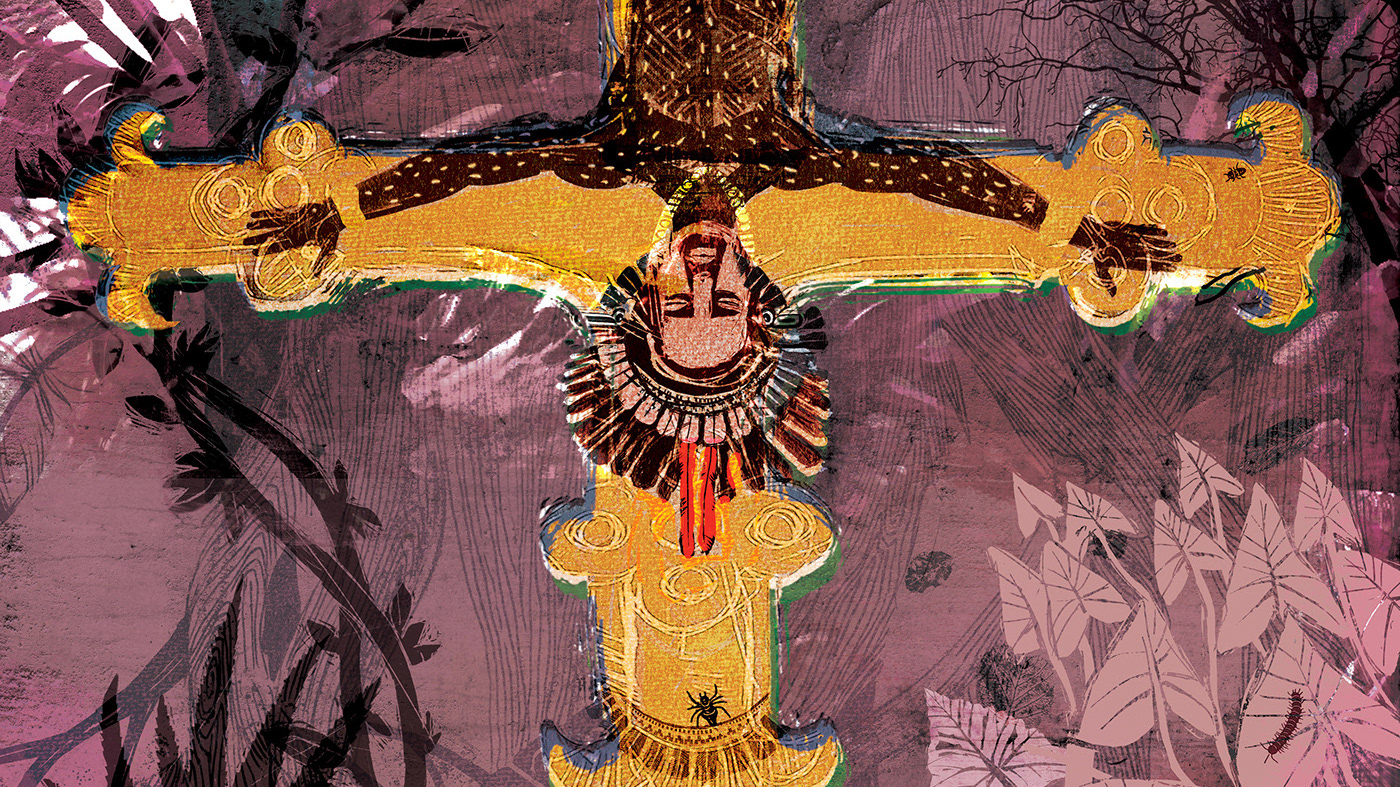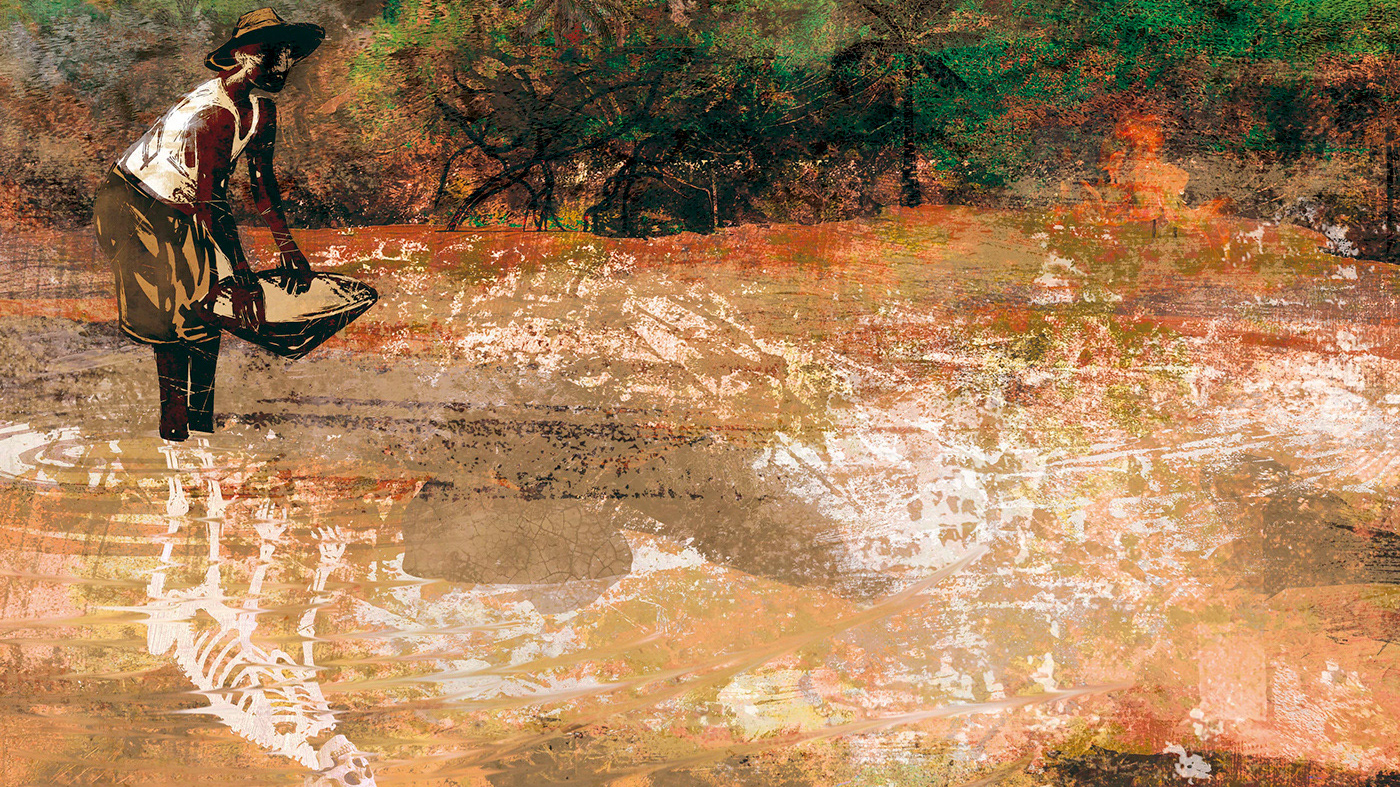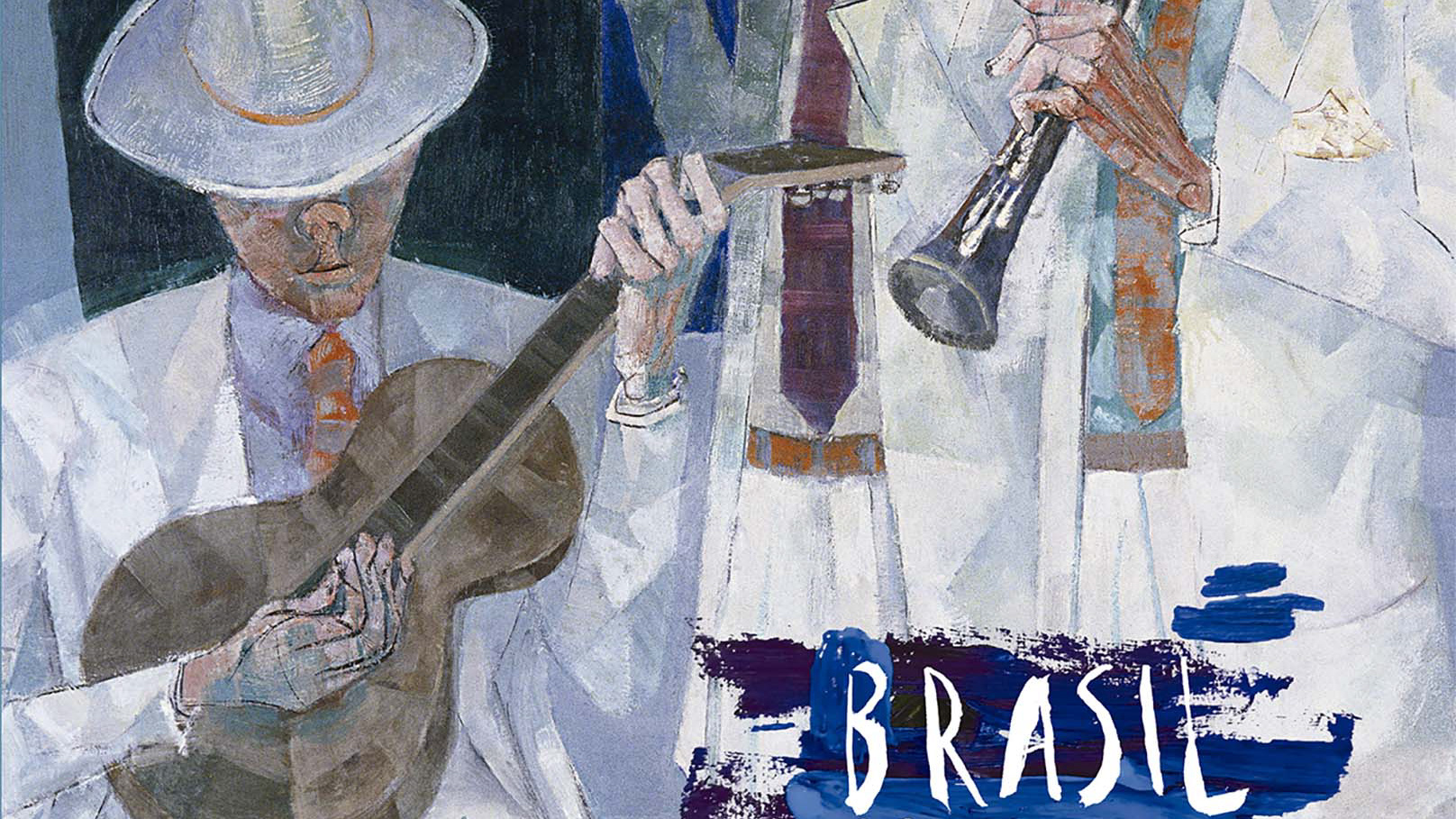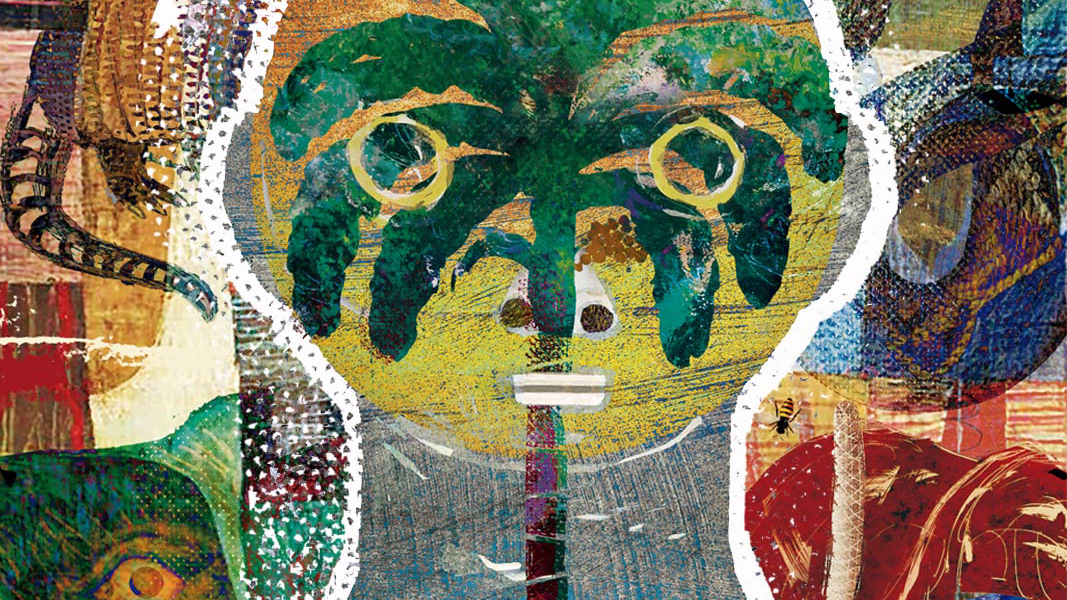A book of collective authorship | companhia das letrinhas, 2023
2023_best books of the year | quatro cinco um_THe magazine of books
organization
Mauricio Negro and Trudruá Dorrico
texts by Auritha Tabajara, Bruna Karipuna, Chirley Maria Pankará, Eliane Potiguara, Glicéria Tupinambá, Lidiane Damaceno Krenak, Márcia Mura, Naine Terena, Simone Karajá, Telma Taurepang, Trudruá Dorrico e Vanessa Kaingang
book cover | illustrations
Mauricio Negro
Written by twelve women from different indigenous nations the stories told or retold that make up this anthology brings many subjective and intersubjective perspectives, according to the tradition and expression of each tradition, supported by the observation of nature, dreams, community experiences, ancestral memories and contemporary readings, their natural and supernatural records, values and customs transmitted through time and territories, updated FROM one generation to the next.
In the stories there is adventure, family relationships, romantic encounters, historical information, origin tales, hints of wisdom, among other highlights. There is also included informative texts about each author's origin, a small glossary and their respective biographies. The book is a delight to all people who follow contemporary literary production, particularly interested in Brazilian diversity and attentive to female protagonism.
Published by Companhia das Letrinhas, the anthology features bichromatic illustrations by Mauricio Negro, which dialogue with the twelve traditional narratives or nuances of the Tabajara, Karipuna, Pankará, Omágua-Kambeba, Tupinambá, Krenak, Buhuaren-Mura, Kinikinau, Iny Mahadu-Karajá, Taurepang, Macuxi and Kaingang Peoples.
Escritos por doze mulheres de diferentes nações indígenas, as histórias contadas ou recontadas que compõem Esta antologia trazem muitas perspectivas subjetivas e intersubjetivas, conforme a tradição e expressão de cada tradição, lastreados pela observação da natureza, dos sonhos, das vivências comunitárias, memórias ancestrais e leituras contemporâneas, seus registros naturais e sobrenaturais, valores e costumes transmitidos pelos tempos e territórios, atualizados de uma geração para a outra.
Nas narrativas há aventura, relações familiares, encontros amorosos, informações históricas, contos de origem, pitadas de sabedoria, entre outros recortes. Acompanham ainda textos informativos sobre o povo de origem de cada autora, um pequeno glossário e suas respectivas biografias. A obra é um deleite todas as pessoas que acompanham a produção literária contemporânea, particularmente interessadas na diversidade brasileira e atentas ao protagonismo feminino.
Publicada pela Companhia das Letrinhas, a antologia traz em bicromia as ilustrações de Mauricio Negro, que dialogam com as doze narrativas das tradições culturais ou matizes das etnias Tabajara, Karipuna, Pankará, Omágua-Kambeba, Tupinambá, Krenak, Buhuaren-Mura, Kinikinau, Iny Mahadu-Karajá, Taurepang, Macuxi e Kaingang.
original illustrations | © Mauricio Negro
The proponents and organizers of the anthology were the author-artists, researchers, and activists of the indigenous literature and socio-environmental cause, Trudruá Dorrico and Mauricio Negro. The collection brings together twelve stories signed by different female authors, guardians of the memory and wisdom of their nations and traditions. These are stories that inspire, breathe, and transpire, while renewing the organic relationship between the feminine principle and natural cycles.
Pachamama, for the Andean indigenous people. Cōātlīcue, for the Aztecs. Yãkõdã, for the Paiter Suruí nation. Yvy Marãey, for the Guarani culture. Etu'I, for the Xavante people. Dyukaha, for the Karajá ethnic group. Omama, for the Yanomami. There are many expressions and, even more, the pressures on Mother Earth.
In the face of the degradation of biomes and climate change, it has never been so essential to enrich narratives, promote convergences, reexamine paradigms, restore natural CIRCULARITY, and rekindle our connections with Mother Earth to ensure living conditions for us and for future generations, both indigenous and non-indigenous.
Os proponentes e organizadores da antologia foram os autores-artistas, pesquisadores e ativistas da causa indígena, literária e socioambiental Trudruá Dorrico e Mauricio Negro. A coletânea reúne doze histórias assinadas por diferentes autoras, guardiãs da memória e sabedoria de suas nações e tradições originárias. São histórias que inspiram, respiram e transpiram, enquanto renovam a relação orgânica entre o princípio feminino e os ciclos naturais.
Pachamama, para os povos indígenas andinos. Cōātlīcue, para os astecas. Yãkõdã, para a nação paiter suruí. Yvy Marãey, para a cultura guarani. Etu'I, para o povo xavante. Dyukaha, para a etnia karajá. Omama, para os yanomami. São muitas as expressões e, ainda mais, as pressões sobre a Mãe Terra.
Diante da degradação dos biomas e das alterações climáticas, nunca foi tão indispensável fertilizar narrativas, promover confluências, rever paradigmas, retomar os ciclos naturais e reativar os vínculos com a nossa Mãe Terra, para garantir as condições de vida para nós e às futuras gerações de povos indígenas e não indígenas.
"Iny Karajá, a Criação" by Simone Karajá
Auritha Tabajara, Bruna Karipuna, Chirley Maria Pankará, Eliane Potiguara, Glicéria Tupinambá, Lidiane Damaceno Krenak, Márcia Mura, Naine Terena, Simone Karajá, Telma Taurepang, Trudruá Dorrico, and Vanessa Kaingang are the authors of the narratives, illustrated by Mauricio Negro.
The launch of the collection takes place in the second half of 2023. The publication follows the well-marked path of the first anthology organized and illustrated by Mauricio Negro, published by the same publisher in 2019 – Nós, an anthology of indigenous literature – a critical and audience success in Brazil and abroad, having been adapted to a podcast by B9 and made available for free to the public through the Globoplay portal here.
Auritha Tabajara, Bruna Karipuna, Chirley Maria Pankará, Eliane Potiguara, Glicéria Tupinambá, Lidiane Damaceno Krenak, Márcia Mura, Naine Terena, Simone Karajá, Telma Taurepang, Trudruá Dorrico e Vanessa Kaingang são as autoras das narrativas, ilustradas por Mauricio Negro.
a recém-publicada obra segue a trilha já bem demarcada pela primeira coletânea organizada e ilustrada por Mauricio Negro, publicada pela mesma editora em 2019 – Nós, uma antologia de literatura indígena –, sucesso de crítica e de público no Brasil e no exterior, tendo sido adaptada para podcast pela B9 e disponibilizada gratuitamente ao público pelo portal da Globoplay aqui.
"Como as águas vieram ao mundo" by Lidiane Damaceno Krenak
"Originárias, a feminine anthology of indigenous literature, brings together stories narrated by twelve indigenous women who are heirs and, therefore, guardians of the memory and wisdom of their native nations and traditions. These are living stories that inspire, breathe, and perspire, renewing the organic relationship between the feminine principle and the natural cycles. The landscape, made of blood and sap, sets the tone for the illustrations that accompany the narratives. In addition to the fertility, ancestry, and identity represented by the black earth, there is the green of the forests, the grasslands, the cerrados, the mangroves, the pampas, and the territories whose landmarks transcend time and space."
"Originárias, uma antologia feminina de literatura indígena reúne histórias narradas por doze mulheres indígenas herdeiras e, portanto, guardiãs da memória e da sabedoria de suas nações e tradições originárias. Histórias vivas que inspiram, respiram e transpiram, enquanto renovam a relação orgânica entre o princípio feminino e os ciclos naturais. A paisagem, feita de sangue e seiva, pauta as ilustrações que acompanham as narrativas. Além da fertilidade, ancestralidade e identidade representadas pelo preto da terra, há o verde das florestas, dos lavrados, dos cerrados, dos mangues, dos pampas, dos territórios cujos marcos transcendem o tempo e os espaços."
Mauricio Negro
"Paata Maimu" by Telma Taurepang
From left to right: Naine Terena (photo Téo Miranda), Márcia Mura (photo Tanã Mura), Eliane Potiguara (photo Ana Marina Coutinho), Glicéria Tupinambá (photo Natália Correa), Auritha Tabajata (acervo pessoal), Trudruá Dorrico e Mauricio Negro (acervo pessoal)
